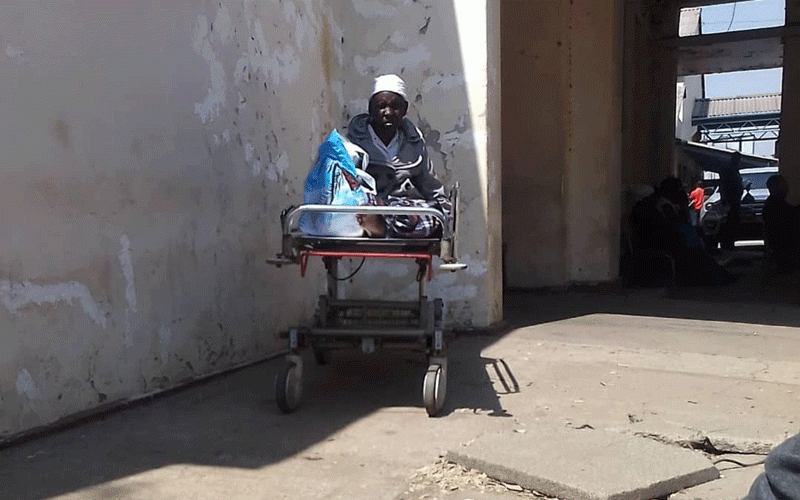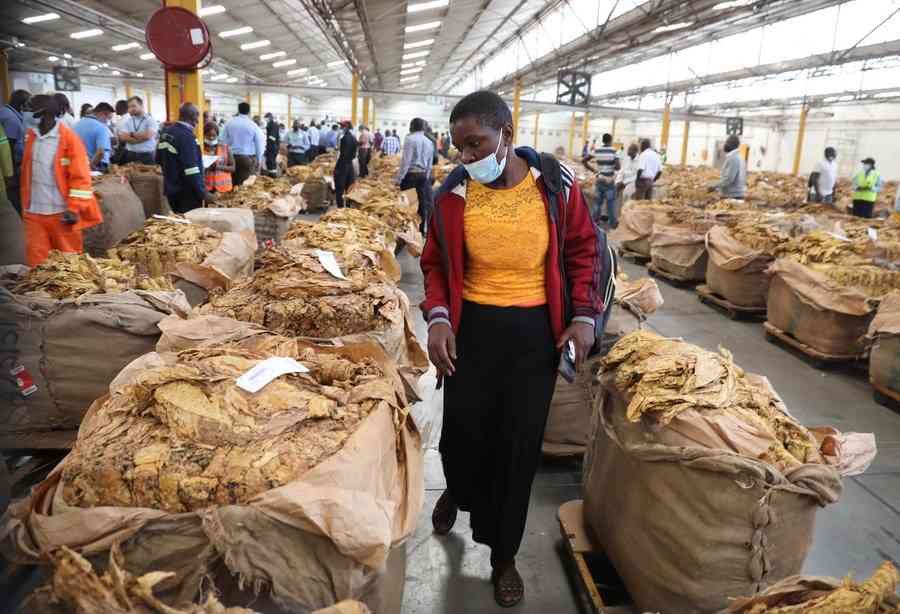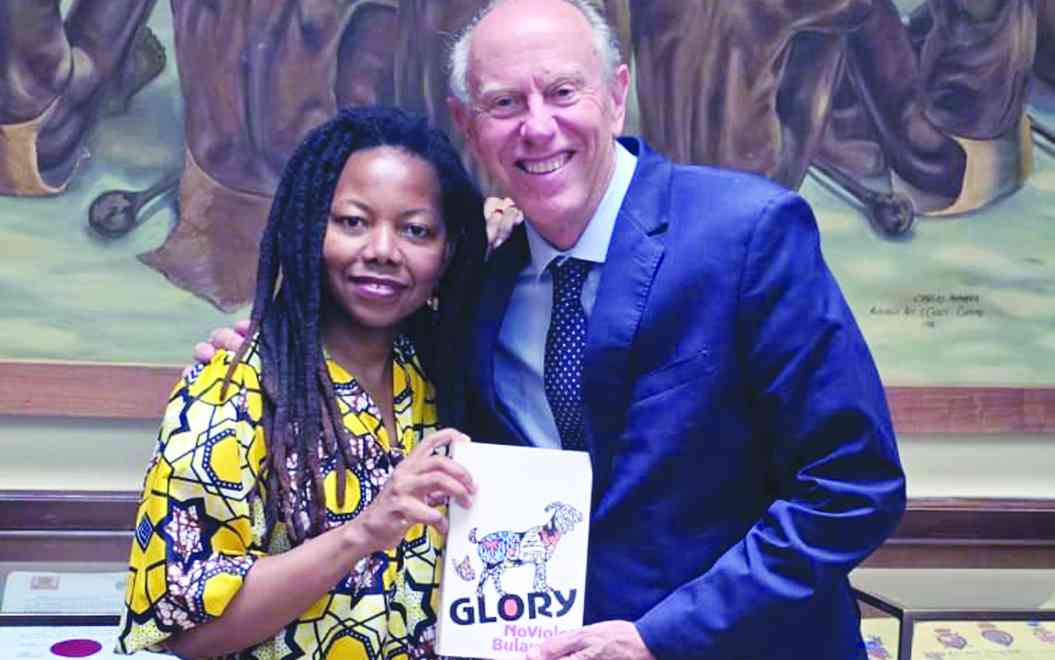
THE deepening health crisis in Zimbabwe has complicated life for many elderly and vulnerable people, with reports alleging that medical staff at the country’s health facilities are selling medicines on the black market to desperate patients, Zimbabwe Independent can reveal.
Visits to the country’s major government hospitals in Harare and Bulawayo have exposed shocking revelations of a collapsing health delivery system, compounded by medical personnel taking advantage of poor desperate patients in the hospitals’ corridors and selling them drugs on the black market.
For many years, Zimbabwe’s government has been warned about the effects of mismanagement in the country’s health delivery system.
But with little or no immediate response in many facilities, frustrated elderly and poor people this week said their ability to pay for health services was dwindling, and the system was now mostly a preserve of the rich.
It is a wrong time to get sick in Zimbabwe. The situation is worse if you are diagnosed with a chronic disease or one needs an emergency surgery. It is almost like a handed down a death sentence for immediate execution. Many recorded deaths are avoidable.
Millions of Zimbabweans have no access to basic health care and are dying in their homes. Some are dying on the streets from preventable ailments.
People are not going for regular check-ups because they cannot afford exorbitant fees charged for consultation and other medical services by private services.
In recent years, the astronomical cost of health care has reached unprecedented levels. This has left many people and their families in despair.
- Feature: Horrors of high unemployment
- Zimbabwe crisis a boon for neighbours
- Civil servants halt strike
- Civil servants issue 10-day ultimatum
Keep Reading
The exorbitant costs associated with medical services is rendering them inaccessible to the majority of Zimbabweans.
With specialist services, private health care is increasingly becoming unaffordable.
Only 10% of the country’s population is under medical insurance.
The high medical insurance premiums, which are rising every month, have rendered them unattainable for the majority of the population.
With the shortfalls for Zimbabwe dollar denominated medical insurance widening every day, some people can no longer afford private medical health care and services.
A visit to the country’s biggest government hospitals exposed the horrors confronting the sick, some of whom wait in agony in long-winding queues, before being attended to. The majority of Zimbabweans, who cannot avoid private health care, have to turn to government hospitals, which are now death traps.
Desperate patients told the Independent it was time government came up with a holistic approach to help the country ride out of its prolonged health crisis.
At Parirenyatwa Group Hospitals, patients said the situation had been compounded by the fact that while drugs were in short supply, workers were seen selling medicines in corridors.
It is not the first time reports of nurses placing people’s lives at risk have emerged.
But with unemployment levels high in Zimbabwe, where pensioners have also seen their savings eroded following decades of mismanagement, many said they were watching their relatives suffer with little help.
“Nothing is for free these days,” said Senia Mutsvairo, an elderly high blood pressure patient, who talked to the Independent at Parirenyatwa, one of the country’s biggest health facilities.
“We have to buy our own medication or we will die. The same staff members at Parirenyatwa are selling us medication. This is difficult because some elderly and vulnerable people cannot afford, hence they are doomed to die because of their chronic ailments,” she said.
The same desperate situation was observed at Sally Mugabe Hospital in Harare, and Mpilo Hospital in Bulawayo.
In an interview, a senior nurse, who asked not to be named, said government’s unfulfilled promises to give medicine to hospitals were destroying the health delivery system, and the crisis was now spiralling out of control.
The nurse said drug theft was rampant in major hospitals, where workers have been complaining about poor pay and conditions of service.
She said the result was a thriving black market for drugs in major hospitals’ corridors, where those who cannot afford were the most affected.
Medical costs are high outside state hospitals where patients access subsidised service.
“The government is supposed to fund/support government hospitals, but nothing is coming,” a senior registered general nurse and midwife at Mpilo said.
“The unavailability of drugs and critical medical supplies is being worsened by theft.”
Zimbabwe’s failure to adequately fund its health system and piecemeal approach in addressing myriad crises confronting the sector, have proven disastrous, according to analysts.
However, Enock Dongo, president of the Zimbabwe Nurses Association, said his members could not be blamed for drug shortages.
“The allegations are not true,” he said.
“We have security to check nurses when they get in and out of hospitals. When patients are turned down, they think nurses are responsible for drug shortages.
“Nurses are guided by ethics and stealing medications is wrong and should stop if that is happening. The government is trying to fund health but it is not enough.
“We appeal to the government and civil society organisations to help with medication in hospitals,” Dongo said.
The struggle to access medication has worsened in the past decade.
Parirenyatwa Hospital requires about US$31 million to boost its operations as a central referral hospital, according to a parliamentary report.
Following a visit by Parliament in 2020, Parirenyatwa’s top brass told legislators that brain drain had also plunged the country’s public health sector into a crisis.
In April, Vice-President and Health minister Constantino Chiwenga, said there were plans to enact a law criminalising the recruitment of health workers to other countries.
Chiwenga’s statement angered health workers.
But about 4 000 health workers are estimated to have emigrated from Zimbabwe since February 2021.
Zimbabwe was one of 55 countries identified by the World Health Organisation (WHO) in March to be facing the “most pressing health workforce challenges related to universal health coverage”.
This refers to the density of doctors, nurses and midwives being below the global median of 49 per 10 000 people.
Zimbabwe’s case illustrates longstanding issues regarding the impact of brain drain on poorer countries, especially in critical sectors such as health.
Thirty-seven out of the 55 countries on the WHO’s list are in Africa, which is projected to face a shortage of 6,1 million health workers by 2030.











